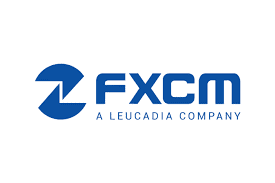Forex Brokers NZ – Best Forex Brokers Revealed
Based in New Zealand and looking to buy, sell, and trade currencies from the comfort of your home? If so, you will need to wade through the many NZ forex brokers out there and choose a trusted broker that best meets your needs.
With so many brokers on the market, finding the right one for you isn’t always easy. Your search should consider many key factors like tradable pairs, supported payment methods, fees and commissions, spreads, and, of course, the regulatory standing of the platform.
To help you out, in this guide we explore the best forex brokers in New Zealand as of 2020. On top of presenting our top findings, we also give you some handy tips on how to choose a New Zealand forex broker yourself.
-
-
Best Forex Broker NZ in 2020
New Zealand residents have an abundance of options when it comes to choosing a forex broker. This does, however, make it somewhat difficult to know which platform to sign up with. After all, you are going to be risking your hard-earned money, so you need to be 100% sure that the broker best meets your needs.
To help you along the way, below you will find a top-rated list of forex brokers in New Zealand for 2020.
Note: As the best online forex brokers operate on a global basis, most denominate account balances in US dollars. As a result, all of the monetary figures (fees, commissions, etc.) you will find below are priced in USD – unless stated otherwise.
1. FXCM – Reputable Forex Broker with MetaTrader 4
 FXCM is an established online forex broker that was first launched in 1999. The brokerage firm has built a solid reputation with forex traders in multiple nations, including New Zealand. On top of a wide selection of CFD instruments, FXCM gives you access to heaps of currency pairs.
FXCM is an established online forex broker that was first launched in 1999. The brokerage firm has built a solid reputation with forex traders in multiple nations, including New Zealand. On top of a wide selection of CFD instruments, FXCM gives you access to heaps of currency pairs.This includes the usual offering of majors and minors, as well as exotics like TRY/JPY and USD/SEK. FXCM is also popular with traders in New Zealand as the platform does not charge any commissions. Spreads are also competitive, as you can trade major pairs like EUR/USD at just 1.3 pips.
Sure, other brokers do offer tighter spreads, but you need to remember that you are avoiding all trading commissions. You will also have access to leverage facilities, with your limits determined by your trading status and the specific pair you wish to access. An additional plus-point of using FXCM is that it supports both MetaTrader 4 and Ninja Trader. This means that you will have a highly advanced set of trading tools at your disposal, as well as the ability to deploy a forex EA.
When it comes to the fundamentals, FXCM is licensed by leading regulatory such as the FCA. The platform asks for a minimum deposit of $360, which is slightly higher than the industry average. Nevertheless, you can use your everyday debit/credit card or bank account, and a selection of e-wallets are also supported.
Pros:
- Supports MetaTrader 4 and Ninja Trader
- A long-established and reputable broker
- No commission
- Strictly regulated
- Mobile trading app
- Online live classroom
Cons:
- High minimum deposit
73.05% of retail investors lose money when trading CFDs at this site
2. Plus500 – CFD Broker with Tight Spreads
Plus500 is a popular CFD provider that offers CFD trading services on forex and stock instruments. In fact, its platform is home to thousands of tradable markets – all of which allow you to place buy and sell positions at the click of a button. When it comes to forex, Plus500 offers lots of tradable pairs.
Best of all – and much like the previous two NZ brokers that we discussed – Plus500 does not charge any trading commissions. As such, it’s just the spread that you need to factor into your costs, as well as overnight financing if you decide to keep your forex position open.
Plus500 offers high leverage limits to New Zealand traders, which can go as high as 1:30. Unlike FXCM, you will not have access to a third-party trading platform like MT4. Instead, you will be using the in-house platform built by the team at Plus500. This means that you can easily access your trading account via your standard web browser.
Plus500 also offers a mobile trading app, which is available on iOS and Android devices. Minimum deposits amount to £100 – or about $191 NZD. You can use a debit/credit card, bank account, or e-wallet to fund your account, and there are no deposit our withdrawal fees to contend with. Plus500 has a strong regulatory standing – details of which you will find below.
Plus500AU Pty Ltd (ACN 153301681), licensed by ASIC in Australia, AFSL 417727, FMA in New Zealand, FSP 486026; Authorised Financial Services Provider in South Africa, FSP 47546.
Pros:
- Commission-free CFD platform
- Competitive spreads
- Thousands of financial instruments across heaps of markets
- Up to 1:30 leverage
- Mobile trading app
- Strictly regulated
Cons:
- More suitable for experienced traders
CFD Service. Your capital is at risk.
3. IG – Trade Forex From O.6 Pips
IG is a global forex and share broker that is home to one of the most extensive trading arenas in the space. In fact, you will have access to tens of thousands of financial instruments across traditional shares, CFDs, spread betting, and of course, forex. This covers dozens of currency pairs across the majors, minors, and exotics. IG is particularly popular with New Zealand traders because of its super-competitive pricing structure.
For example, major pairs like EUR/USD and AUD/USD come with spreads of just 0.6 pips. USD/JPY is also competitive at just 0.7 pips. Moreover, IG does not charge any trading commissions when you trade forex. You will also have access to leverage facilities, with some pairs requiring a margin of just 0.5%. This translates into leverage of 1:200.
On top of an extensive library of assets and low fees, IG gives you several options in the trading arena. For example, you can buy and sell currencies via MT4, or use the proprietary IG platform. Either way, you can trade online or via your mobile phone. The broker does require a slightly higher minimum deposit of £250 – which is about $480 NZD.
you can easily deposit funds with an NZ debit/credit card, bank account or PayPal. In terms of regulation, IG is licensed by heaps of reputable bodies, including ASIC and the FCA. Its parent company, IG Group Holdings PLC, is publicly listed on the London Stock Exchange.
Pros:
- Trusted broker with a long-standing reputation
- Wide range of currency pairs
- Spreads from 0.6 pips
- Supports MT4
- Great research department
- Accepts PayPal
Cons:
- Minimum deposit of £250
There is no guarantee you will make money with this provider.
What is an Online Forex Broker?
Put simply, an online forex broker sits between you and the $5 trillion global currency arena. That is to say, online brokers allow you to buy, sell, and trade dozens of currency pairs at the click of a button.
Taking a trip down memory lane momentarily, in a time not so long ago every day New Zealand residents would find it very difficult to access the forex markets. This is because the industry was reserved for the institutional space – meaning you would likely need a six-figure balance to get a look in.
Fast forward to 2020 and the age of digitalization has since opened the doors up to the retail client space. In other words, you can often open an account in minutes from the comfort of your home, deposit around $100, and then begin trading forex.
In most cases, the role of an online forex broker is as follows:
- Offer you a forex trading account in minutes
- Allow you to deposit funds with a debit/credit card, bank account, or e-wallet
- Host dozens of currency pairs across the majors, minors, and exotics
- Ensure the platform has heaps of liquidity
- Match your buy and sell orders with other traders of the platform
- Provide top-notch customer support
In return for providing the aforementioned services, New Zealand brokers do, of course, charge fees. As we uncover in more detail further down, the best online forex brokers do not charge commissions. Instead, such platforms will make their money from the spread. In simple terms, this is the difference between the buy and sell price of a currency pair.
How do New Zealand Forex Brokers Work?
If you’re a New Zealand resident and you wish to try your hand at forex trading, you will be pleased to know the end-to-end process is actually very straightforward. Your first port of call will be to open an account and then upload some ID. This ensures that the platform complies with its regulatory responsibilities. Then, you will be asked to make a deposit.
After that, you are ready to begin trading forex. As such, you then need to decide which currency pair you wish to access. As a newbie trader, it might be best to start off with major pairs like EUR/USD and GBP/USD. The reason being that major pairs are home to high trading volumes and liquidity levels. In turn, they have low volatility levels. This is crucial, as it means you are less likely to experience huge profit and loss swings.
To help clear the mist on how New Zealand forex brokers work, check out the example below.
- You decide that you want to trade GBP/USD. To go straight to the respective trading page, you enter ‘GBP/USD” into the search box.
- You will then see a trading chart that displays the real-time price movement of GBP/USD. You can change the candlestick time-frame to suit your needs, which is typically from 1 minute up to 1 week.
- You will then need to set up an order. If you think the forex pair will increase, you place a buy order. If you think the opposite, you place a sell order.
- You enter your stake and if applicable – select how much leverage you wish to apply.
- If you want to automate the closure of your trade, you can set up stop-loss and take-profit orders.
- If not, you can elect to close the position automatically at a time that suits you.
And that’s it – trading forex online via a New Zealand broker really is that simple!
New Zealand Forex Broker Fees: What you Need to Know
All New Zealand forex brokers are in the business of making a profit, so you will always need to pay a fee of some sort. The key problem in this respect is that fee structures vary wildly from broker to broker.
For example, while some brokers might charge high commissions, you might be offered industry-leading spreads. Equally, you might find an NZ broker that offers commission-free forex trades but then charges less competitive spreads.
Nevertheless, below we discuss the main fees that you need to look out for when choosing an NZ forex broker that best meets your needs.
Spreads
All NZ forex brokers charge a spread. This is the difference between the buy and sell price of an asset, and it ensures that brokers always make a profit.
For example:
- Let’s suppose that the real-time spot rate on GBP/USD is 1.2602
- But, when you visit your online broker, you will notice that there are two different prices on this pair
- The buy price is 1.2601, and the sell price is 1.2603
As you can see from the above, the buy price is 1 pip lower than the spot rate, and the sell price is 1 pip higher. In simple terms, this means that you will need to make gains of at least 1 pip just to get back to the break-even point. In other words, as soon as your forex position goes live, you are immediately in the red.
The best New Zealand forex brokers will offer spreads of less than 1 pip – especially on major currency pairs.
Commissions
If trading commissions are charged by your chosen broker, it is often a percentage fee against the value of your forex position. For example, if the broker charges 0.1% and you are trading $20,000 worth of currencies, then you will pay an entry fee of $20.
Then, you will pay 0.1% when you’d decide to exit your position. You also need to check whether the broker charges a minimum commission. Sticking with the same example as above, although the broker might charge a commission of 0.1% if it has a minimum fee of $50, then this is what you would have ended up paying.
In this scenario, the broker would only be suitable if you were planning to trade large volumes. With that being said, we find that the best New Zealand forex brokers allow you to trade currencies on a commission-free basis. As such, it will just be the spread that you need to pay.
Other Forex Trading Fees
Although spreads and commissions are the main two fees that you need to look out for, there are several other costs that need to be taken into account.
This includes:
- Overnight Financing Fee: All forex pairs are leverage products. As such, you will need to pay an overnight financing fee for each day that you keep your trading position open. This is why forex is conducive for short-term trading only. Crucially, even if you do not apply leverage to your forex trade, overnight financing fees will always come into play!
- Currency Conversion Fee: The vast majority of online forex brokers in New Zealand will charge you a currency conversion fee. This will either be at the point of making a deposit, or when you attempt to access a non-domestic market. Either way, this averages 0.5%.
- Deposit/Withdraw Fee: Some, but not all, NZ forex brokers will charge you a fee to deposit and withdraw funds. If they do, the fee might vary depending on the type of payment method that you wish to use.
- Inactivity Fee: As the name suggests, this particular fee is charged when your forex trading account is flagged as dormant. This is usually the case when you fail to log in to your account for a certain period of time. This can be anything from 1 month up to a year.
All in all, understanding the fee structure that your chosen NZ forex broker has in place is crucial. In fact, you should never sign up for a new platform without having a firm grasp of what you will end up paying!
How to Choose the Best New Zealand Forex Broker?
Although we have carefully selected the best New Zealand forex brokers of 2020, there might come a time where you decide to perform your own research. This is wise, as it will ensure that the broker in question meets your investing goals.
To help point you in the right direction, below you will find some important considerations that need to be made before joining a new forex trading platform.
1. Is the NZ Forex Broker Regulation?
Without intending to state the obvious, it is crucial that your chosen broker is regulated. In fact, we would suggest taking things one step further by ensuring it is licensed by a reputable body like the FCA, ASIC, or CySEC. In doing so, you will benefit from a range of regulatory safeguards – such as:
- Tier-one licensing bodies require all NZ forex brokers to identify their clients. This helps counter the threats of money laundering, terrorist financing, and other financial crimes.
- License issuers also require brokers to keep client funds in segregated bank accounts. This should be with a leading financial institution that has a deposit protection scheme in place.
- Regulated brokers must have their trading/order books audited by an accredited third-party
Ultimately, choosing a forex broker that doesn’t hold at least one tier-one license could lead to major problems further down the line. As such, the safety of your funds should be the main priority.
2. What Payment Methods Does the NZ Forex Broker Support?
Once you are certain that the broker has a strong regulatory standing, you then need to assess what payment methods it supported. After all, you are going to need to deposit and withdraw real-world dollars and cents into the platform.
In most cases, you will find that the top forex brokers accept the following payment methods:
- Visa
- MasterCard
- Maestro
- Paypal
- Skrill
- Neteller
- Bank Wire
Be extra vigilant in assessing minimum deposit amounts, and whether or not certain payment methods attract additional fees.
3. What Currency Pairs Does the NZ Forex Broker List?
Once you have taken care of the fundamentals (regulation and payments), you then need to spend some time evaluating the platform’s forex arena. That is to say, you need to ensure that the broker supports your preferred currency pairs. We would expect your chosen broker to list all majors and minors at a minimum.
In terms of exotic pairs, this will vary widely depending on the platform in question. The good news is that you can check what pairs are supported at the broker’s website before opening an account. The top forex brokers in New Zealand offer over 50 currency pairs, which gives you plenty of choices when it comes to trading.
4. How Much Does the NZ Forex Broker Charge?
Although we have already discussed the ins and outs of fees at forex brokers NZ, it is an important metric to consider in your search for a suitable platform.
All in all, you should aim for brokers that offer:
- 0% commissions when trading forex
- Low spreads. This should sit below 1 pip on major pairs like EUR/USD and GBP/USD
- Zero (or low) deposit and withdrawal fees
- Competitive overnight financing and leverager facility fees
As we briefly noted earlier, you will often find that there is a trade-off between spreads and commissions. That is to say, 0% commission brokers will often charge wider spreads, while commission-based brokers will often charge tight spreads!
5. What Trading Features and Tools Does the NZ Forex Broker Offer?
This particular segment of your research journey is likely to be the most comprehensive, as there are so many variables to consider.
This includes:
- Trading Platforms: Explore what trading ‘platforms’ the broke offers. In some cases, you will have access to popular third-party platforms like MT4, MT5, and ZuluTrade.
- Research Tools: Having access to technical indicators and chart reading tools is crucial when trading forex online. Without them, you will be buying and selling currencies on a ‘whim’. As such, stick with NZ forex brokers that offer heaps of research tools.
- Educational Tools: If you are just starting off in the world of online forex, then it’s best to stick with brokers that offer in-house educational tools. This can be anything from guides on trading strategies, forex calculators, or weekly webinars.
- Leverage: If you are looking to amplify your starting capital, you might be considering leverage. If so, check to see what leverage limits are in place for your chosen currency pair. Take note, this can be as high as 1:500 for New Zealand residents.
- Execution Speeds: The global forex markets move at an incredibly fast pace. As such, you need to ensure that you are using a broker that offers super-fast execution speeds. If you don’t, you might suffer from ongoing ‘slippage’.
The above list is just an example of some of the factors that you need to look at. If you don’t have time to research a broker yourself, it might be worth scrolling back up to review the platforms that we have pre-vetted.
Conclusion
In summary, there are many online forex brokers active in the space that accept New Zealand traders. While ample choice is always a good thing, this does make it difficult to know which broker to sign up with.
As a result, we hope that our guide on the best NZ forex brokers of 2020 has been useful. If you want to do some additional research, we have also provided some handy tips on how to choose a trading platform on a DIY basis.
FAQs
What is the best forex broker in New Zealand?
No two forex brokers are the same, so you need to do some homework to find a platform that is right for you. For example, while some NZ traders focus on brokers that offer low spreads, others are more interested in advanced chart reading tools.
Are New Zealand forex brokers safe?
Largely, yes. However, this is dependent on the forex broker holding at least one tier-one license. The top forex brokers are regulated by leading bodies like the FCA, CySEC, or ASIC, which means you shouldn't encounter any issues.
What NZ payment methods do forex brokers accept?
Once again, this will depend entirely on your chosen broker. With that said, the most support of the top forex brokers accept NZ debit/credit cards and bank accounts, and some even support e-wallets.
What is the cheapest forex broker in New Zealand?
If by saying the cheapest you are referring to trading fees, there are many of them. This is because you will be able to trade forex without paying any commissions, and spreads are very reasonable during standard market hours.
Where can I use a forex EA in New Zealand?
If you want to use a forex EA - or any automated system for that matter, your best bet is to use a broker that supports MT4. Some examples include FXCM and IG.
Kane Pepi
Kane Pepi is a British researcher and writer that specializes in finance, financial crime, and blockchain technology. Now based in Malta, Kane writes for a number of platforms in the online domain. In particular, Kane is skilled at explaining complex financial subjects in a user-friendly manner. Academically, Kane holds a Bachelor’s Degree in Finance, a Master’s Degree in Financial Crime, and he is currently engaged in a Doctorate Degree researching the money laundering threats of the blockchain economy. Kane is also behind peer-reviewed publications - which includes an in-depth study into the relationship between money laundering and UK bookmakers. You will also find Kane’s material at websites such as MoneyCheck, the Motley Fool, InsideBitcoins, Blockonomi, Learnbonds, and the Malta Association of Compliance Officers.View all posts by Kane PepiLatest News
Music Streaming Revenues to Hit $23B in 2021, a 50% Jump Compared to pre-COVID-19 Figures
Like many other sectors, the music industry has been significantly affected by COVID-19, with the massive cancelation of live events and huge ticket sales revenue drops amid the lockdown. With earnings from live music events shrunk to the lowest level in history, artists increasingly rely on income from streaming platforms. According to data presented by...
Software Startups Raised $176.7B in Total Funding, a 27% Increase YoY
Software solutions have entered all aspects of life in the digital age, with millions of individuals and businesses relying on operating systems and apps to carry out daily tasks. The entire sector’s growth has been followed by the increasing number of software startups searching for a way to raise capital and expand their growth. According...
WARNING: The content on this site should not be considered investment advice and we are not authorised to provide investment advice. Nothing on this website is an endorsement or recommendation of a particular trading strategy or investment decision. The information on this website is general in nature, so you must consider the information in light of your objectives, financial situation and needs. Investing is speculative. When investing your capital is at risk. This site is not intended for use in jurisdictions in which the trading or investments described are prohibited and should only be used by such persons and in such ways as are legally permitted. Your investment may not qualify for investor protection in your country or state of residence, so please conduct your own due diligence or obtain advice where necessary. This website is free for you to use but we may receive a commission from the companies we feature on this site.
BuyShares.co.uk © 2026.
All Rights Reserved. UK Company No. 11705811.
We use cookies to ensure that we give you the best experience on our website. If you continue to use this site we will assume that you are happy with it.Scroll Up









